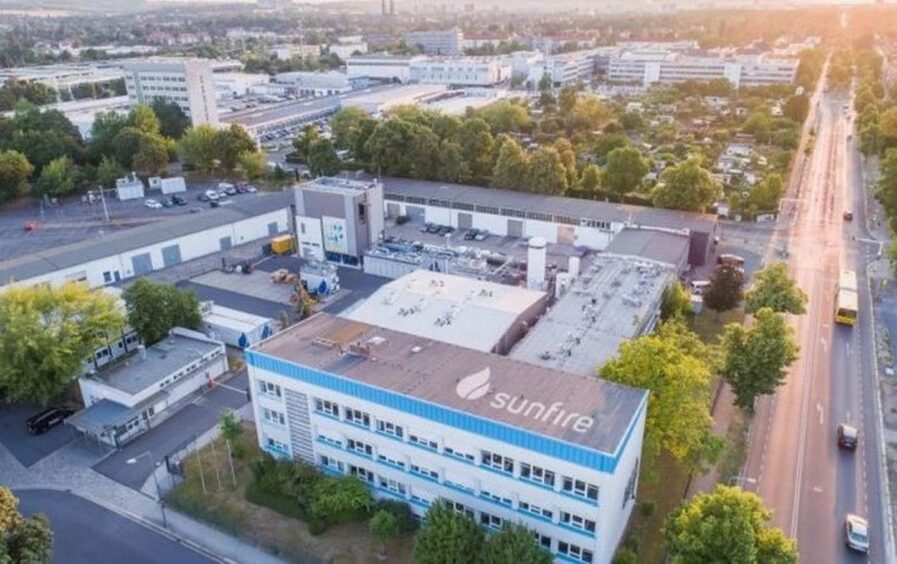
German green hydrogen company Sunfire GmbH raised over €500 million (£427m) to further its development of technology that may be key to Europe’s climate goals.
The funding includes €215 million (£183m) of new equity, along with a €100 million (£85m) loan from the European Investment Bank and a grant of €200 million (£171m) to fuel the company’s growth in the coming years. That will be key to its investments in manufacturing and technological improvements that will help its green hydrogen technology compete with fossil fuel alternatives.
“With this new capital, we are uniquely positioned to further accelerate our company’s growth and industrialization plans to meet the fast-growing demand for electrolysis technologies,” said Nils Aldag, Sunfire’s chief executive officer.
The company brought in funds from new investors, including a division of the Liechtenstein royal family’s LGT Group and Singaporean sovereign-wealth fund GIC Pte, and existing investors, such as the Amazon Climate Pledge Fund and Planet First Partners.
Sunfire hydrogen electrolysers
Hydrogen is seen as a potential solution to cut fossil fuels from industrial processes like steel making and chemicals production, as well as a way to store renewable electricity as a gas to burn later in power plants without producing planet-warming emissions. When made via electrolysis, a process that uses electricity to separate hydrogen from water, the system can be entirely green. But it’s also much more expensive today than the fossil fuel alternatives and will need generous government subsidies to scale up.
Sunfire offers two kinds of electrolyzers: older technology in pressurized alkaline model and newer technology in high-temperature solid oxide electrolysis. About half of the funds raised will go to developing technology to make the hydrogen they produce more affordable, Aldag said in an interview. The company will also scale up manufacturing, with plans to have 1 gigawatt of production of its alkaline model by the end of the year and 500 megawatts of the solid oxide device by 2027.
While alkaline machines dominate projects today, the solid-oxide technology could be key to reducing costs. Those machines operate at high temperatures, which allows them to consume less electrical energy. That benefit will allow Sunfire to compete directly in the coming years with fossil fuels, according to Andreea Constantinescu, managing partner at Planet First Ventures, a €450 million climate tech fund formed by Frédéric de Mévius, the founder of investment firm Verlinvest.
“From a European Union perspective, an industrial strategy perspective, it’s becoming increasingly evident that hydrogen continues to be anchoring this EU approach to decarbonization,” Constantinescu said. Sunfire is “on a very clear pathway to becoming commercially viable.”
Recommended for you
